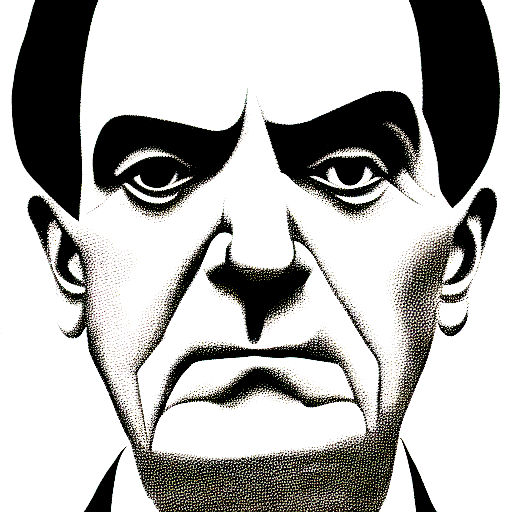Daniel Webster (January 18, 1782 – October 24, 1852) was an American lawyer and statesman who represented New Hampshire and Massachusetts in the U.S. Congress and served as the U.S. Secretary of State under Presidents William Henry Harrison, John Tyler, and Millard Fillmore. Webster was one of the most prominent American lawyers of the 19th century, and argued over 200 cases before the U.S. Supreme Court between 1814 and his death in 1852. During his life, he was a member of the Federalist Party, the National Republican Party, and the Whig Party.
Born in New Hampshire in 1782, Webster established a successful legal practice in Portsmouth, New Hampshire, after graduating from Dartmouth College and undergoing a legal apprenticeship. He emerged as a prominent opponent of the War of 1812 and won election to the United States House of Representatives, where he served as a leader of the Federalist Party. Webster left office after two terms and relocated to Boston, Massachusetts. He became a leading attorney before the Supreme Court of the United States, winning cases such as Dartmouth College v. Woodward, McCulloch v. Maryland, and Gibbons v. Ogden. Webster returned to the House in 1823 and became a key supporter of President John Quincy Adams. He won election to the United States Senate in 1827 and worked with Henry Clay to build the National Republican Party in support of Adams.
After Andrew Jackson defeated Adams in the 1828 presidential election, Webster became a leading opponent of Jackson's domestic policies. He strongly objected to the theory of nullification espoused by John C. Calhoun, and his Second Reply to Hayne speech is widely regarded as one of the greatest speeches ever delivered in Congress. Webster supported Jackson's defiant response to the Nullification Crisis, but broke with the president due to disagreements over the Second Bank of the United States. Webster joined with other Jackson opponents in forming the Whig Party, and unsuccessfully ran in the 1836 presidential election. He supported Harrison in the 1840 presidential election and was appointed secretary of state after Harrison took office. Unlike the other members of Harrison's Cabinet, he continued to serve under President Tyler after Tyler broke with congressional Whigs. As secretary of state, Webster negotiated the Webster–Ashburton Treaty, which settled border disputes with Britain. In 1837, Webster was elected as a member to the American Philosophical Society.Webster returned to the Senate in 1845 and resumed his status as a leading congressional Whig. During the Mexican–American War, he emerged as a leader of the "Cotton Whigs," a faction of Northern Whigs that emphasized good relations with the South over anti-slavery policies. In 1850, President Fillmore appointed Webster as secretary of state, and Webster contributed to the passage of the Compromise of 1850, which settled several territorial issues and enacted a new fugitive slave law. The Compromise proved unpopular in much of the North and undermined Webster's standing in his home state. Webster sought the Whig nomination in the 1852 presidential election, but a split between supporters of Fillmore and Webster led to the nomination of General Winfield Scott. Webster is widely regarded as an important and talented attorney, orator, and politician, but historians and observers have offered mixed opinions on his moral qualities and ability as a national leader.
Sol turns thousands of years of human wisdom from the world’s spiritual traditions into a totally unique personality profile. To get your own profile, check compatibility with friends and much more, download the Sol App today.
Some of their strengths
Daniel Webster has many admirable traits.
Based on spiritual traditions from around the world, they are someone who can be described as Hardworking, Loyal, Strong, Trustworthy, Honest, Perseverent, and Artistic.
Smart and Hardworking
According to Mysticism’s Astrology tradition, Daniel Webster is someone who is a smart, hardworking, reliable, and loyal person, who is detail-oriented and orderly, but also generous and optimistic. A person who sees life as a journey not a destination.
Adaptable and Versatile
Based on Daoism’s Ba-Zi or ‘Chinese Zodiac’ tradition, people who know Daniel Webster well know them as someone who can be adaptable, flexible, and polite, like a flower or a sapling.
Productive and Perseverent
According to Hinduism’s Jyotisha or ‘Vedic Astrology’ tradition, many would also describe Daniel Webster as someone who is productive, persevering, deliberate, and direct.
A person who is creative, has good luck with work and money, good listening skills, good relationships with people at work, is a good teacher or counselor, and who is good at organizing groups, teams, or causes.
Inquisitive and Progressive
Based on the Mayan Tzolk’in or ‘Mayan Astrology’ tradition, Daniel Webster is someone who is an eternal student who is always interested in learning new things, and who has a desire to shake things up and change things.
They are also someone who is curious, dynamic, and positive, and who enjoys inspiring and communicating with other people.
Patient and Perseverent
According to Judaism’s Kabbalah tradition, Daniel Webster tends to be someone who is patient, faithful, hardworking and persistent, and who wants to achieve a lot in life. Who tends to be rather private when it comes to expressing feelings, enjoys being independent and self-sufficient, and who is not afraid of any obstacle.
Some of Daniel Webster's challenges
While Daniel Webster has many strengths, nobody is perfect. They also have some challenging traits they need to manage.
For example, Daniel Webster can be Stubborn, Unrealistic, Suspicious, Indecisive, Idle, Possessive, and Unemotional.
Suspicious and Stubborn
One of Daniel Webster's key challenges is that they are someone who can be suspicious and stubborn.
Possessive and Stubborn
Daniel Webster is someone who can be possessive, jealous, inflexible, and stubborn, can have a habit of being a frivolous spender, and who can feel insecure or cynical in romantic relationships and have difficulty forming productive personal and professional partnerships.
Callous and Stubborn
Finally, Daniel Webster also can come across as cold and unemotional, be too dismissive of others' opinions, and be overly suspicious, selfish and crafty.

